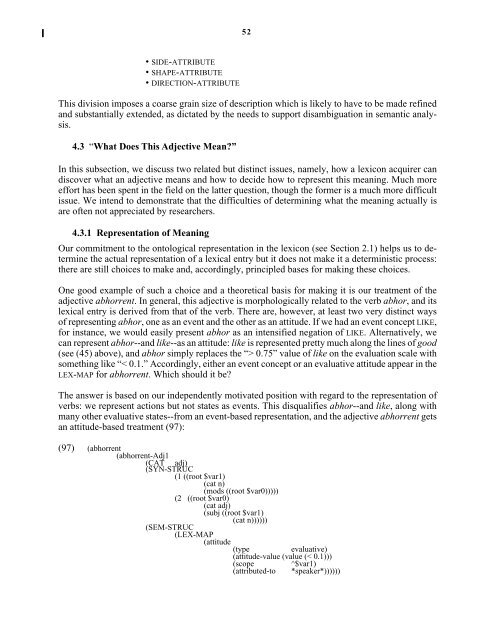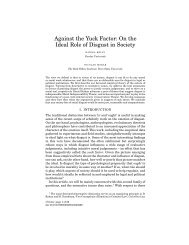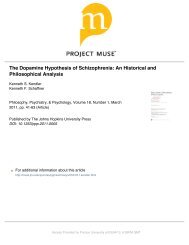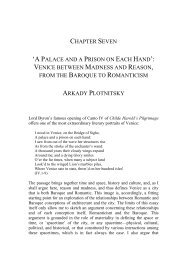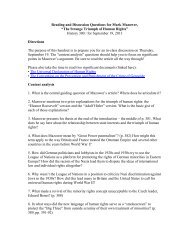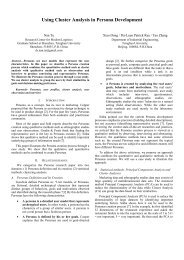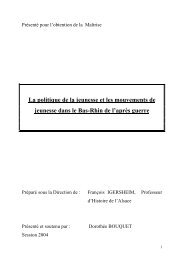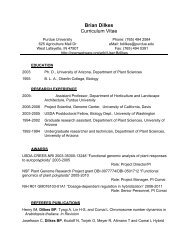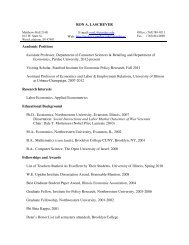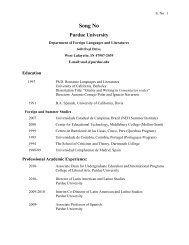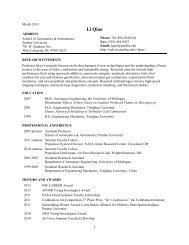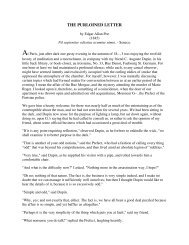Lexical Semantics of Adjectives - CiteSeerX
Lexical Semantics of Adjectives - CiteSeerX
Lexical Semantics of Adjectives - CiteSeerX
You also want an ePaper? Increase the reach of your titles
YUMPU automatically turns print PDFs into web optimized ePapers that Google loves.
• SIDE-ATTRIBUTE<br />
• SHAPE-ATTRIBUTE<br />
• DIRECTION-ATTRIBUTE<br />
52<br />
This division imposes a coarse grain size <strong>of</strong> description which is likely to have to be made refined<br />
and substantially extended, as dictated by the needs to support disambiguation in semantic analysis.<br />
4.3 “What Does This Adjective Mean?”<br />
In this subsection, we discuss two related but distinct issues, namely, how a lexicon acquirer can<br />
discover what an adjective means and how to decide how to represent this meaning. Much more<br />
effort has been spent in the field on the latter question, though the former is a much more difficult<br />
issue. We intend to demonstrate that the difficulties <strong>of</strong> determining what the meaning actually is<br />
are <strong>of</strong>ten not appreciated by researchers.<br />
4.3.1 Representation <strong>of</strong> Meaning<br />
Our commitment to the ontological representation in the lexicon (see Section 2.1) helps us to determine<br />
the actual representation <strong>of</strong> a lexical entry but it does not make it a deterministic process:<br />
there are still choices to make and, accordingly, principled bases for making these choices.<br />
One good example <strong>of</strong> such a choice and a theoretical basis for making it is our treatment <strong>of</strong> the<br />
adjective abhorrent. In general, this adjective is morphologically related to the verb abhor, and its<br />
lexical entry is derived from that <strong>of</strong> the verb. There are, however, at least two very distinct ways<br />
<strong>of</strong> representing abhor, one as an event and the other as an attitude. If we had an event concept LIKE,<br />
for instance, we would easily present abhor as an intensified negation <strong>of</strong> LIKE. Alternatively, we<br />
can represent abhor--and like--as an attitude: like is represented pretty much along the lines <strong>of</strong> good<br />
(see (45) above), and abhor simply replaces the “> 0.75” value <strong>of</strong> like on the evaluation scale with<br />
something like “< 0.1.” Accordingly, either an event concept or an evaluative attitude appear in the<br />
LEX-MAP for abhorrent. Which should it be?<br />
The answer is based on our independently motivated position with regard to the representation <strong>of</strong><br />
verbs: we represent actions but not states as events. This disqualifies abhor--and like, along with<br />
many other evaluative states--from an event-based representation, and the adjective abhorrent gets<br />
an attitude-based treatment (97):<br />
(97) (abhorrent<br />
(abhorrent-Adj1<br />
(CAT adj)<br />
(SYN-STRUC<br />
(1 ((root $var1)<br />
(cat n)<br />
(mods ((root $var0)))))<br />
(2 ((root $var0)<br />
(cat adj)<br />
(subj ((root $var1)<br />
(cat n))))))<br />
(SEM-STRUC<br />
(LEX-MAP<br />
(attitude (type evaluative)<br />
(attitude-value (value (< 0.1)))<br />
(scope ^$var1)<br />
(attributed-to *speaker*))))))


